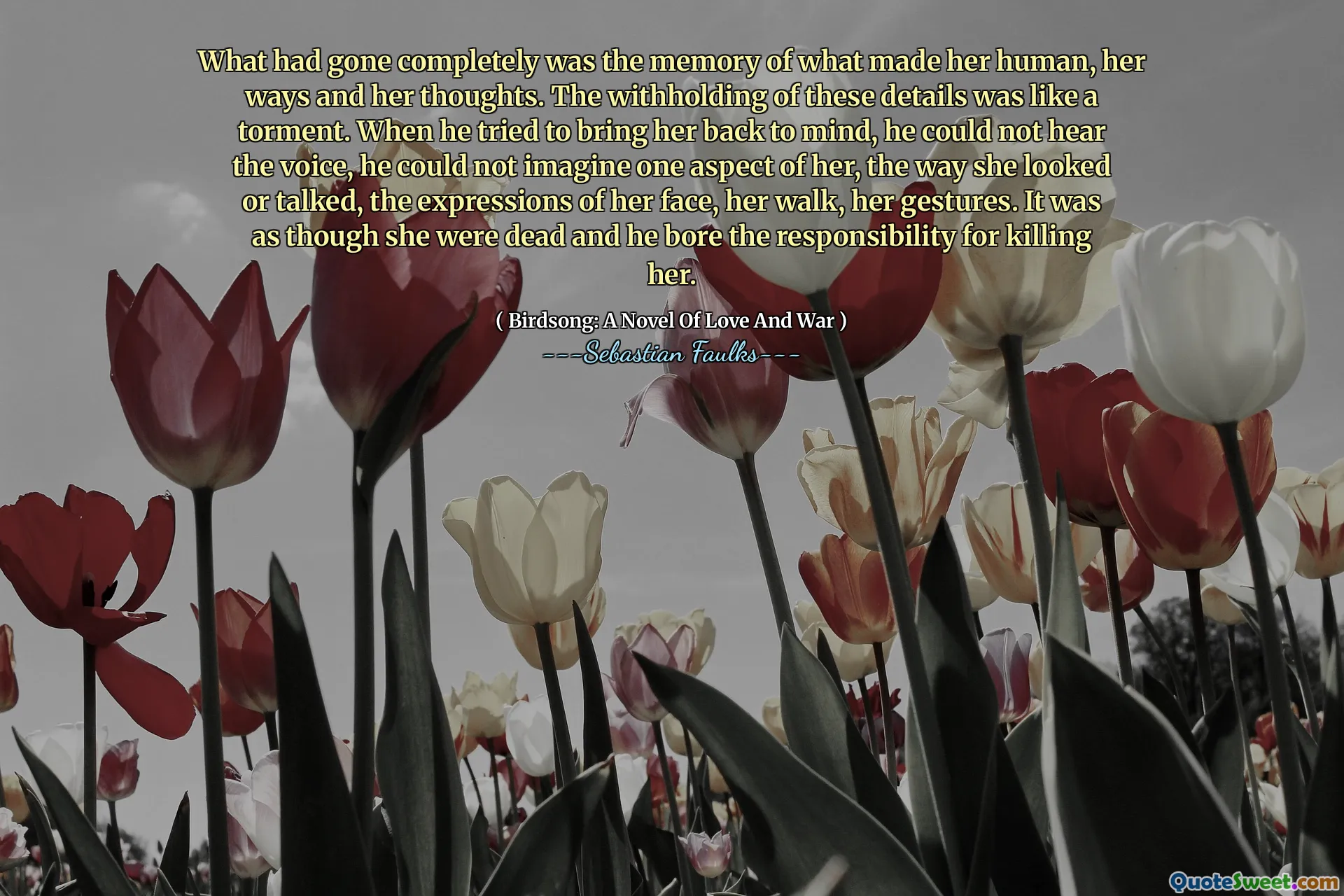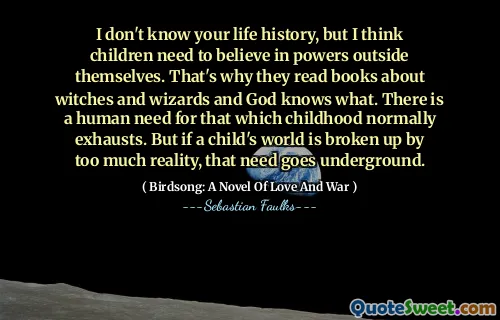
What had gone completely was the memory of what made her human, her ways and her thoughts. The withholding of these details was like a torment. When he tried to bring her back to mind, he could not hear the voice, he could not imagine one aspect of her, the way she looked or talked, the expressions of her face, her walk, her gestures. It was as though she were dead and he bore the responsibility for killing her.
In Sebastian Faulks' "Birdsong: A Novel Of Love And War," a poignant theme emerges as a character grapples with the profound loss of a loved one's essence. The memories that defined her humanity—the nuances of her thoughts, emotions, and personality—have dissipated. This absence creates a sense of torment for him, highlighting the deep connection they once shared. The struggle to recall her voice, her appearance, and her mannerisms emphasizes the magnitude of her absence in his life.
As he reflects on this loss, he is plagued by guilt, feeling responsible for her disappearance. It is as if she has vanished entirely, leaving him to shoulder the burden of that loss alone. The inability to reconnect with her spirit serves as a haunting reminder of the fragility of human relationships and the devastating impact of war. The character's anguish illustrates the emotional toll of losing someone who had been a vital part of his existence.







